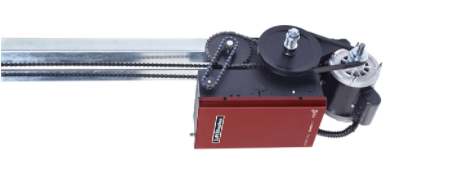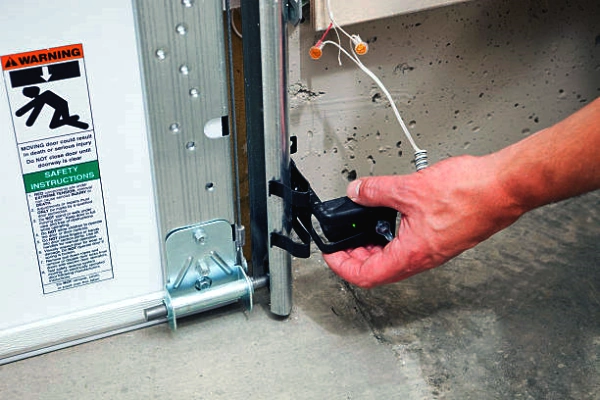The sudden thump and the eerie silence that follow when your garage door fails to operate—we’ve all been there. Imagine yourself running late for work, and your garage door refuses to open, or it’s a chilly winter night, and you find yourself stuck outside because the garage door won’t close. Frustrating, isn’t it? But before you let panic set in or spend hefty amounts on emergency repairs, remember that not every issue requires professional intervention. Homeowners can fix a lot of minor issues with garage door openers by themselves. Equipped with some basic knowledge and DIY spirit, you’ll save both time and money. Stay with us as we walk you through an essential guide on how to troubleshoot garage door opener problems and DIY fixes to get your garage door opener up and running once more.
Common Garage Door Opener Problems
Garage door opener issues can be frustrating and inconvenient, especially when you’re in a hurry or facing inclement weather. However, understanding the common problems that can arise with garage door openers is the first step toward troubleshooting and finding a solution. Let’s explore some of these common issues and how to identify them.
Intermittent Operation
One of the most frequent problems homeowners encounter with their garage door openers is intermittent operation. This means that the opener may work sporadically or not at all. It could be due to a variety of reasons, such as dead batteries in the remote control, a malfunctioning wall switch, or even a problem with the opener’s circuit board.
Grinding or Scraping Sounds
Another common issue is when the garage door opener makes grinding or scraping sounds while operating. This usually indicates an issue with the garage door tracks or rollers. Over time, these components can become misaligned or worn out, causing friction and noise during operation.
Remote Control Challenges
Furthermore, if your garage door opener fails to respond to remote control commands, it may indicate a problem with either the remote itself or the receiver in the opener unit. Issues, like damaged antenna wires or interference from other electronic devices, can also affect the signal transmission between the remote and the opener.
Sensor Failures
Garage door safety sensors are an essential component of modern garage door systems. They are responsible for detecting any obstructions in the path of the closing door and preventing accidents or damage. However, when these sensors malfunction or become misaligned, they can disrupt the normal functioning of your garage door opener.
Safety Feature Dysfunction
When it comes to garage doors, safety is of paramount importance. Modern garage door openers are equipped with safety features such as photoelectric sensors or infrared sensors that detect obstructions in the door’s path and prevent accidents from occurring. However, these safety features can sometimes malfunction, compromising the overall functionality of your garage door opener.
If your garage door won’t close all the way or opens immediately after closing, it’s likely due to a safety feature malfunction. The first step in troubleshooting this issue is to check the alignment of the safety sensors. Dirt or debris may be obstructing the sensors’ line of sight, preventing them from detecting objects. Use a soft cloth to clean both sensors thoroughly and ensure they are properly aligned.
Other Issues
It’s worth noting that not all problems lie within the garage door opener unit itself. Sometimes, issues may be related to other components of your garage door system. For example, a broken torsion spring can prevent the door from opening or closing properly. Similarly, worn-out cables or misaligned tracks can impede smooth operation.
Identifying the specific issue with your garage door opener requires a process of elimination and observation. Start by checking if power is reaching the opener; ensure it’s plugged in and that there are no tripped circuit breakers. Inspect external controls, such as the wall switch, remote control, and keypad, and replace batteries if necessary. Observe any unusual sounds or movements when operating the door, as this can help pinpoint potential problems with tracks, rollers, or other hardware.
If you have identified a specific issue that you’re unable to address on your own or if troubleshooting efforts have been unsuccessful, it may be time to seek professional assistance. A licensed garage door technician possesses the expertise and tools to diagnose and resolve complex garage door opener problems effectively.

How to Troubleshoot Garage Door Opener Problems: DIY Fixes
When your garage door opener experiences mechanical issues, it can be frustrating and inconvenient. However, before calling a professional, there are several DIY fixes you can attempt to resolve the problem.
Firstly, if your garage door won’t open or close at all, it’s essential to check if the opener is properly plugged in and if the circuit breaker hasn’t been tripped. These simple steps might save you from unnecessary troubleshooting. Additionally, ensure that the door has not been manually locked and consider replacing the batteries in both the keypad and remote control.
Next, it’s crucial to test all external controls, such as the wall switch, keypad, and remote control. Look out for any signs of damage and ensure they are within range of your opener. If necessary, reprogram or reset them according to the manufacturer’s instructions. Furthermore, check if the wall switch requires new wiring or if it is faulty.
Addressing Connected Opener or Remote Control Issues
If you’re experiencing problems with your connected opener or remote control system, troubleshooting these issues can often be done by following a few straightforward steps.
One common issue is when your garage door won’t close all the way or immediately opens back up after closing. In such cases, it’s important to check the alignment of the safety sensors located on both sides of the door near the floor. Make sure they are clean from any dirt or debris that may impede their function and ensure that there are no obstructions blocking their path.
In some cases, adjusting the garage door limit switches can also help address problems with opening and closing. It’s important to refer to the manufacturer’s instructions for specific guidance on how to adjust these switches properly.
If your garage door opener is receiving power but not operating as it should, there may be a mechanical failure or specific components that need attention. Check for broken gears, worn-out components, or a malfunctioning circuit board that may require replacement. Pay close attention to chain drive openers and make sure they have proper tension.
When to Seek Professional Help for Garage Door Opener Problems
While it’s always commendable to tackle garage door opener problems on your own, there are instances where seeking professional help becomes necessary. DIY fixes and troubleshooting tips can only take you so far, and sometimes the expertise and experience of a professional technician are required to ensure the safety and optimal functioning of your garage door system.
One of the key indicators that it’s time to call in the professionals is when you’ve exhausted all possible troubleshooting options without success. If you’ve followed the recommended steps for troubleshooting and still can’t identify or fix the problem, it’s a sign that a deeper issue may be at play.
Let’s say you’ve tried everything from testing and replacing batteries to checking safety sensors and adjusting limit switches. You’ve even gone through the process of lubricating tracks and ensuring proper alignment. Yet, despite your best efforts, the garage door still refuses to open or close as it should. This is when it’s important to recognize that certain problems may require specialized knowledge and tools that only a professional technician possesses.
Additionally, if your garage door opener exhibits persisting issues even after successfully applying temporary fixes or resets, it is advisable to seek professional assistance. Temporary solutions might work temporarily but fail to address the underlying cause of the problem. Ignoring recurring issues can lead to further damage and potentially result in costly repairs down the line.
Another factor that indicates when professional help is needed is when you encounter unfamiliar sounds or abnormal behavior from your garage door opener. Unusual grinding noises, excessive vibrations, or jerky movements can be signs of significant mechanical issues within the opener mechanism. Attempting repairs without proper knowledge in such cases could potentially worsen the problem or compromise your safety.
Ultimately, while taking a DIY approach to troubleshooting garage door opener problems is worth attempting, knowing when to seek professional help is crucial. When your efforts have been exhausted, the problem persists, or you encounter signs of more significant issues, it’s time to call a professional technician. They have the expertise, experience, and specialized tools needed to diagnose and address complex issues effectively. Remember, ensuring the smooth and safe operation of your garage door system is paramount, so don’t hesitate to seek professional assistance when necessary.
Final Words
Powell Garage Doors stands as your trusted partner when it comes to troubleshooting garage door opener issues, providing an effortless and stress-free experience. Owned and run by Chris Powell, an industry veteran with decades of experience, our level of knowledge and dedication cannot be rivaled.
So if your garage door opener needs repairs, don’t hesitate to reach out. Powell Garage Doors provides professional, reliable, and cost-effective solutions that will have your garage door functioning flawlessly in no time. Contact us now and experience the difference yourself! Your garage deserves nothing less than excellence from us at Powell Garage Doors. Experience it today and see for yourself.


0 Comments